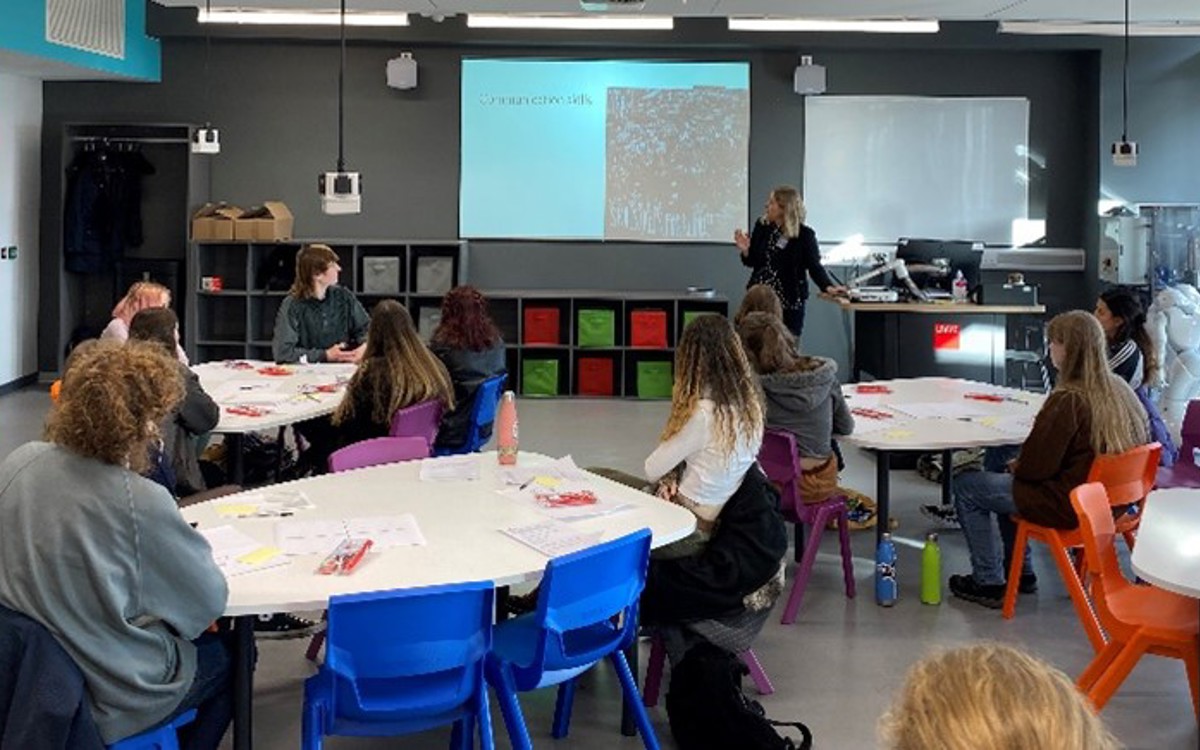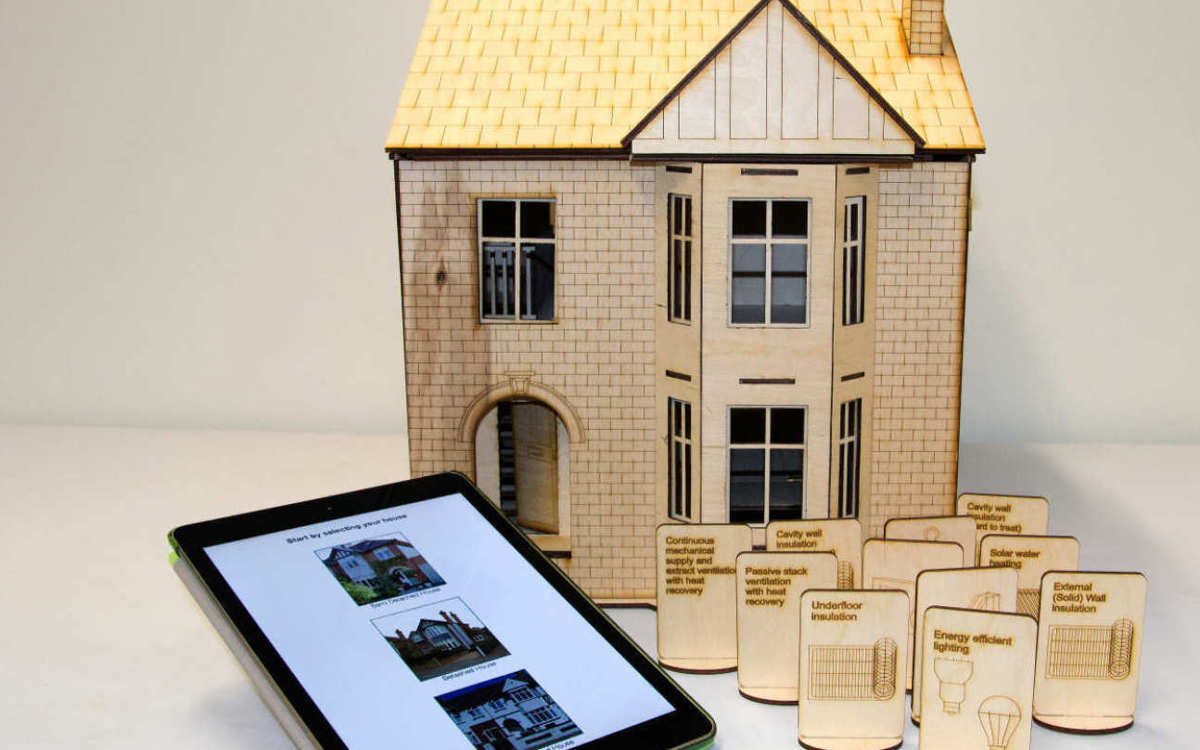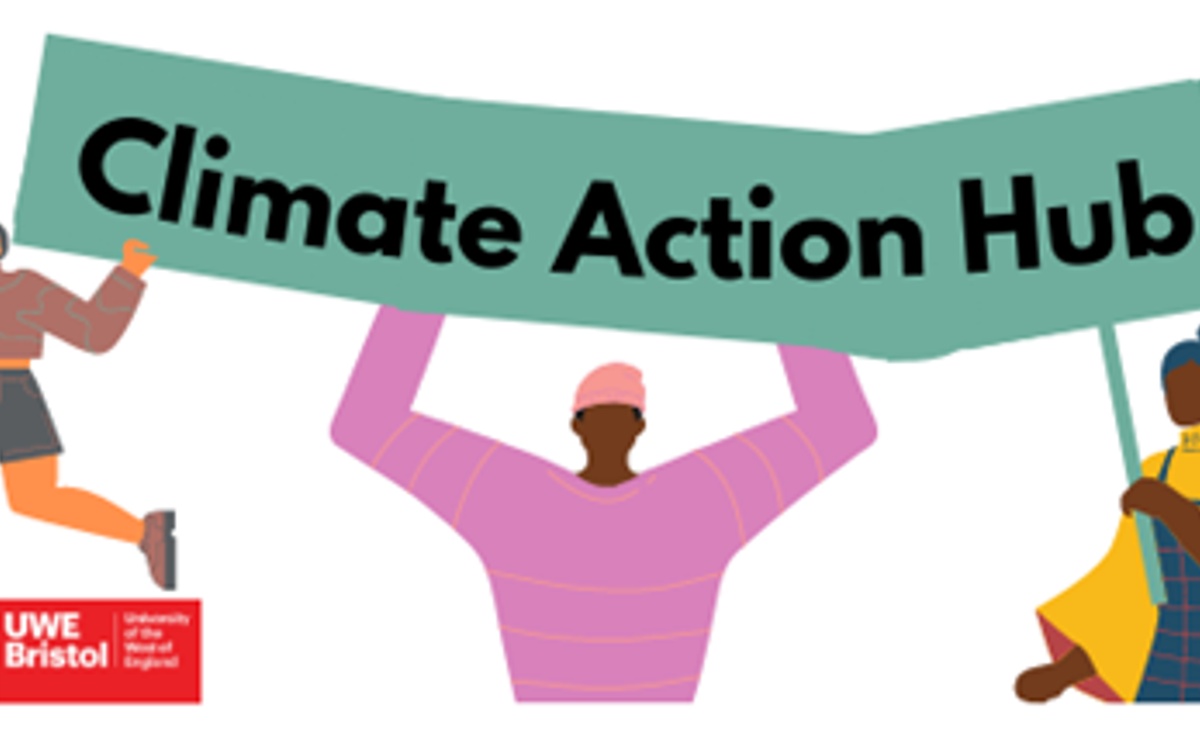
Youth Climate Communications: a pilot
On 24th February, 12 young people, aged 15-24, headed to UWE’s Prototype and Play Lab, in the School of Engineering, for a training day in Climate Communications. Passionate about addressing the climate and ecological emergency, and eager to learn and connect with likeminded people, the delegates came from across the Bristol area, with representation from five different schools/colleges and from the University.
With over half of young people reported to experience some form of climate-related anxiety (Hickman et al. 2021) – this training emerged out of the collective interest of researchers at UWE (from the Science Communication Unit, FET, ABE and DGEM) keen to share their knowledge with, and empower, the younger generation.
How to address climate anxiety
To steer young people away from overwhelm, timely action, forethought and trust in science are needed (Manzanedo & Manning, 2020). And according to a research project by Climate Outreach, to resonate with young people we, as adults, need to validate their negative thoughts while avoiding overly optimistic communications, and provide resources that can alleviate their anxiety.
Drawing on this research, and the interests of young people, the Science Communication Unit shaped the programme of activities for a pilot session with young people.
On the day
“Start with the why”
Associate Professor Laura Fogg-Rogers and Research Fellow Sophie Laggan started the training by explaining that different ways of viewing the world shape how we make decisions and the only way to forge meaningful dialogue and promote pro-environmental change is through meeting people where they’re at. They used the example of solar panels – where one household might buy solar panels for environmental reasons, others do so out of economic/energy security, and others simply because they follow the ‘norm’ – their neighbours did it.
The participants ran with this idea in a role-playing exercise where they tried to convince someone ‘not like them’ – and in a position of power and influence – to install solar panels on the roof of their school. With a bit of context about what makes their partner tick, the participants were able to tap into the other person’s values and use it to their advantage.

Sustainable Housing activity
Following lunch and a tour of the Campus’s community garden, the group returned for an engagement activity on passive houses with Dr Deborah Adkins. Each table were given a wooden replica of a typical UK house and asked to stick post-its on the areas they thought could be improved for sustainability, everything from solar panels to insulation and green roofs. The task was accompanied by a short presentation, allowing the participants to learn more about sustainable housing.
Designing their own engagement activity
Deborah’s session was followed by an in-depth explanation of the value of physical engagement activities, by Sophie, with the chance for each participant to prototype their design for an engagement activity based on the issue that mattered to them, be that local food or slow fashion. Their issues of concern were formulated in the opening session of the day – “Start with the why”.
Filming sustainability
The day was concluded with top tips by Josh Warren on filmmaking on a budget, before the young people were set to task on recording their own short film on a sustainability topic. The group enjoyed watching each other’s films and spent the last few minutes of the day reflecting on how valuable the day was for their activism and general understanding of people ‘not like them’.
Climate Anxiety post-training
Before and after surveys, showed that the young people’s negative thoughts (scared, angry, concerned, powerless, guilty, confused) all reduced following the training (except for mournful) and positive thoughts increased (empowered, hopeful, optimistic and determined).
Confidence in communication skills also increased. For instance, 100% felt confident/very confident in engaging their audience after the training, compared to just 11% (N=1) before.

Next steps
Participants suggested that training on social media, graphics and poster design would be useful, and so the team will shortly launch a social media campaign training event for the cohort.
Shortly after the training day the team found out they were successful in their bid to the HEIF FET-FBL Award! This means the training can be replicated for different youth groups, with a focus on those from more diverse backgrounds. And enables them to create e-learnings and printable toolkits.
This work on climate anxiety in young people sits under the umbrella of the Climate Action Hub at UWE, which acts as a space for researchers to connect with communities interested in tackling the climate and ecological emergency. To facilitate this exchange, the Hub is looking at setting up a Staff Network to allow staff the time to build these connections. If you are interested in connecting to the Hub in any way, or have ideas on how it should operate, then please contact [email protected].

This training was led by Research Fellow Sophie Laggan, Associate Professor Dr Laura Fogg-Rogers, Senior Lecturer Dr Deborah Adkins and Josh Warren.
References:
Hickman, C., Marks, E., Pihkala, P., Clayton, S., Lewandowski, R.E., Mayall, E.E., Wray, B., Mellor, C. and van Susteren, L., 2021. Climate anxiety in children and young people and their beliefs about government responses to climate change: a global survey. The Lancet Planetary Health, 5(12), pp.e863-e873.
Manzanedo, R.D. and Manning, P., 2020. COVID-19: Lessons for the climate change emergency. Science of the Total Environment, 742, p.140563.
Taylor, S., 2020. Anxiety disorders, climate change, and the challenges ahead: Introduction to the special issue. Journal of Anxiety Disorders, 76, p.102313.
Climate Outreach, 2020, Britain Talks Climate, 18th November 2020. URL: https://climateoutreach.org/reports/britain-talks-climate/
